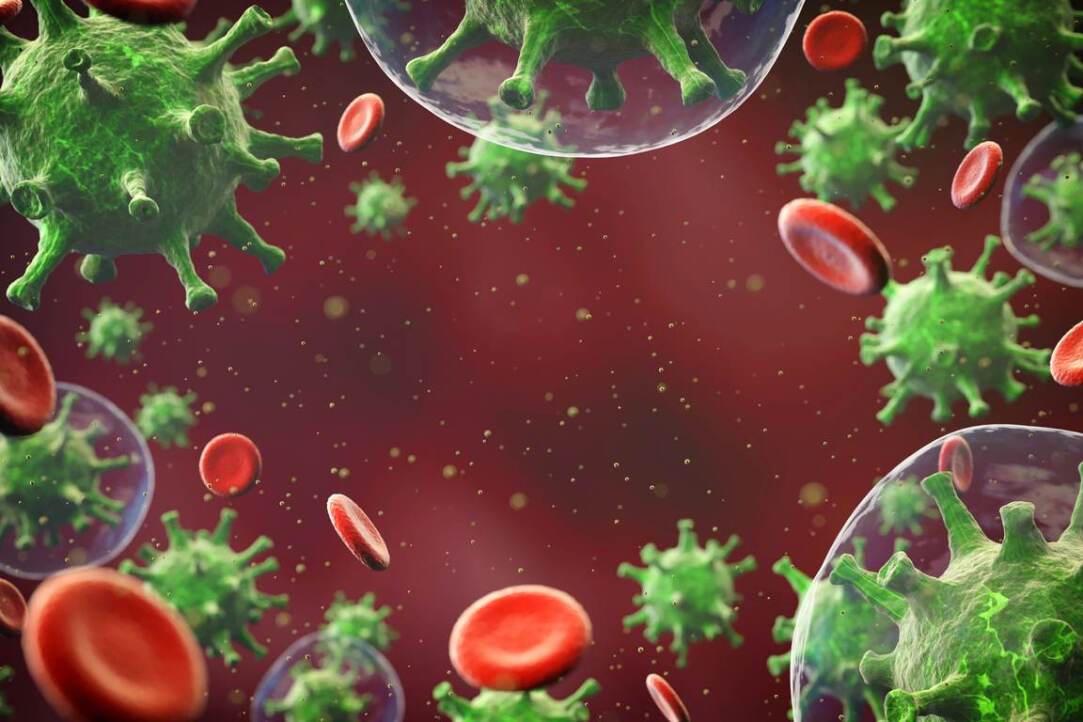Paper by HSE Biologists Included in the Top 5 Popular Articles of PeerJ Journal

An article by researchers from HSE University’s Faculty of Biology and Biotechnology is among the most read articles published in the PeerJ journal in 2023. In the paper, the researchers establish a link between the genetic characteristics of the human immune system and its ability to effectively resist new waves of COVID-19. PeerJ is a peer-reviewed open access scientific journal covering research in the field of biological and medical sciences. Every year the editors compile a ranking of the most popular scientific papers.
In the article ‘HLA-A*01:01 allele diminishing in COVID-19 patients population associated with non-structural epitope abundance in CD8+ T-cell repertoire’, Russian scientists compared the features of the genotypes of HLA-I patients with COVID-19 of the first and third waves of the pandemic. They found that the frequency of carriers of the HLA-A*01:01 allele decreased by half among patients from the third wave compared to the first.

The first author of the article, Head of the HSE University Laboratory for Research on Molecular Mechanisms of Longevity
‘We started studying genetic susceptibility to COVID-19 almost immediately after the outbreak of the pandemic. In our study published back in 2021, we found out that carriers of HLA-A*01:01 are more prone to severe COVID-19. However, further studies have shown that a significant proportion of patients carry COVID-19 in mild form, including carriers of HLA-A*01:01. The decrease in the number of carriers of this allele found among patients of the third wave may occur as a result of the fact that a significant proportion of them were ill by the third wave and formed a stable T-cell immunity, which does not require hospitalisation.’
The researcher suggests that interest in the article is a result of them managing to confirm genetic susceptibility to a severe form of COVID-19. In particular, Russian scientists have shown that in patients with the HLA-A*01:01 allele who have been ill with COVID-19, memory T-lymphocytes, i.e. cells that store infection antigens and provide a rapid immune response upon repeated exposure to the virus, predominate.
HSE University’s Faculty of Biology and Biotechnology team continues to research genetic susceptibility to COVID-19, as well as its various strains. A new paper, which is scheduled for publication in the Medical Virology journal in the first half of 2024, explains the differences in the development of infection in intestinal and lung cells when comparing the Omicron variant with Delta, the previous variant, which caused a severe course of the disease. The obtained results can help predict the behaviour of new strains, including a new variant called ‘Pirola’.
‘Our scientists are continuing to make a significant contribution to the development of world science by collaborating with colleagues from different countries and participating in international projects. Thanks to this, Russian science remains one of the leaders in the global scientific community. Now we are studying features of the formation of immunity to SARS-CoV-2 in a joint project with Taipei Medical University. We are also developing antitumor vaccines based on neoantigens together with our colleagues from Sun Yat-sen University,’ adds Maxim Shkurnikov.
See also:
HSE Researchers Find Out How to Communicate Health Information More Effectively to Fight COVID-19
Focusing on mortality from the COVID-19 virus is no more effective than calls to wear masks and save lives, but it significantly increases people's anxiety. After conducting an experiment with over 15,000 respondents from 84 countries, an international group of researchers, including scientists from HSE, came to this conclusion. The results of the study have been published in the Affective Science journal.
COVID-19 Mortality Highest in More Affluent Russian Regions
COVID-19 came as an unexpected challenge for humanity. Countries adopted different, sometimes diametrically opposed approaches to minimising the pandemic's impact: from hard lockdowns to no restrictions at all, as in Sweden. It was only last week that China began to relax its zero-tolerance policy. Researchers of the HSE Faculty of Economic Sciences have identified a few factors which tend to have the greatest impact on the spread of COVID-19—in Russia, such factors include ambient humidity and temperatures, population mobility, the share of internal migrants in the local population, and household incomes. The study findings are published in Population and Economics.
Acceptance of Vaccination Associated with Lower Social Media Use and Higher Trust in Government
Vaccination is generally considered an essential tool for curbing the COVID-19 pandemic. Although Russia was one of the first countries to develop a vaccine against COVID-19 and launched an immunisation campaign in 2021, its vaccination rates remained low for a long time. By October 2021, only 36% of Russian adults were vaccinated, many of whom were compelled by their employers to do so. Having examined the factors contributing to low trust in vaccination among Russians, HSE economists suggest measures to improve vaccination uptake. The paper is published in Vaccine.
Russian Researchers Assess the Power of T-Cell Immune Response to Omicron BA.1 and BA.2
Scholars from HSE University and the RAS Institute of Bioorganic Chemistry have demonstrated the efficiency of T-cell immune response against the Omicron variant of SARS-CoV-2. In approximately 90% of vaccinated Europeans, T-cell immunity was as effective against Omicron as with other variants. The results of the study were published in PeerJ.
Russian Researchers Assessed the Likelihood of Sleep Disorders after COVID-19
A team of researchers from the HSE Centre for Cognition and Decision Making and the Central State Medical Academy conducted a study on sleep disorders, mood and fatigue after COVID-19. These factors are interrelated and the researchers recommend a comprehensive approach to treat the problem effectively. The work was published in the journal Neuroscience and Behavioral Psychology.
HSE Biologists Prepare Strategy for Universal COVID Test
Russian researchers have developed a strategy to create a cheap and rapid COVID-19 test based on isothermal amplification. According to their publication in Applied Biochemistry and Microbiology, use of this strategy will make it possible to create universal test systems for any of the COVID-19 variants.


